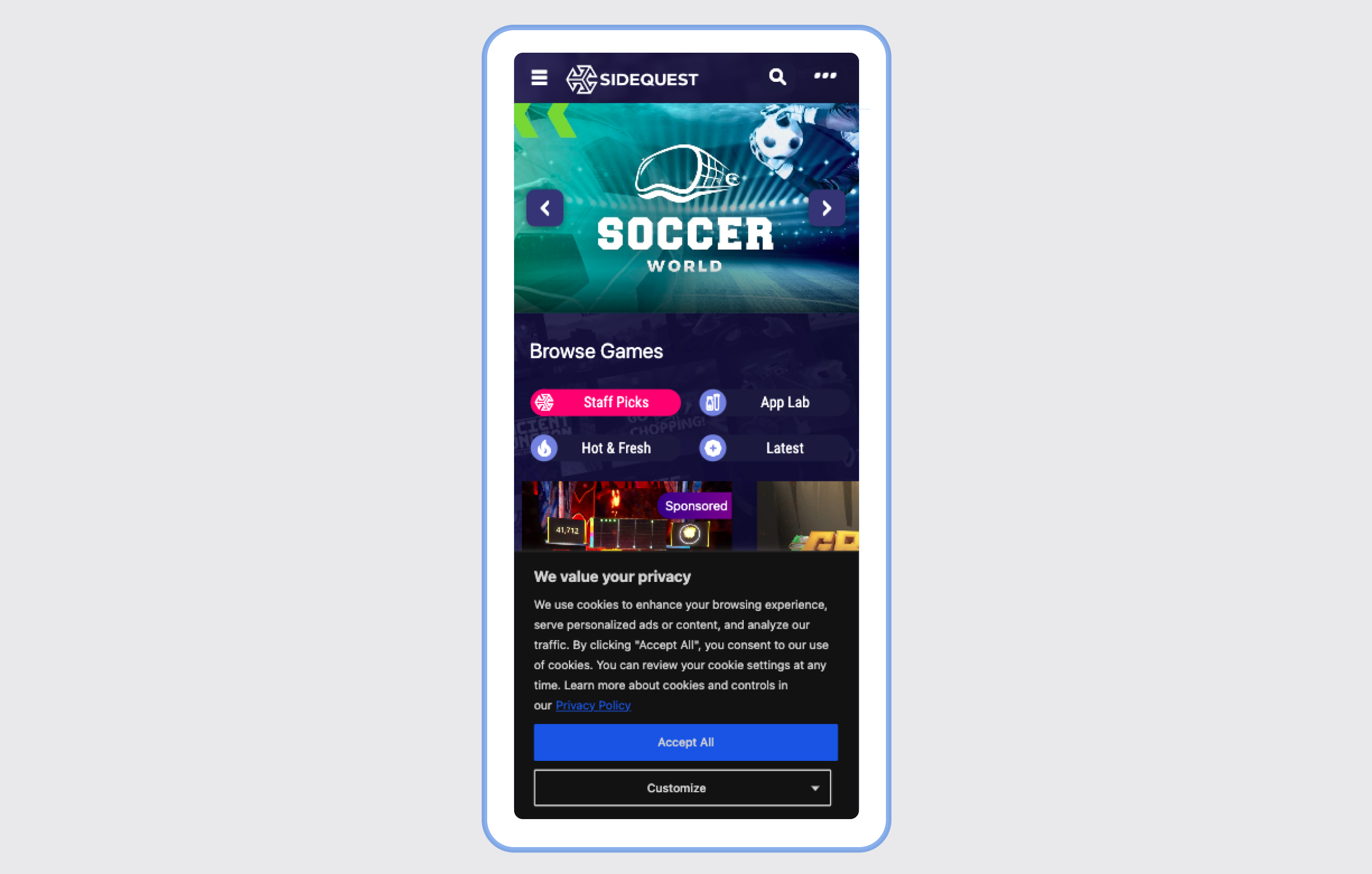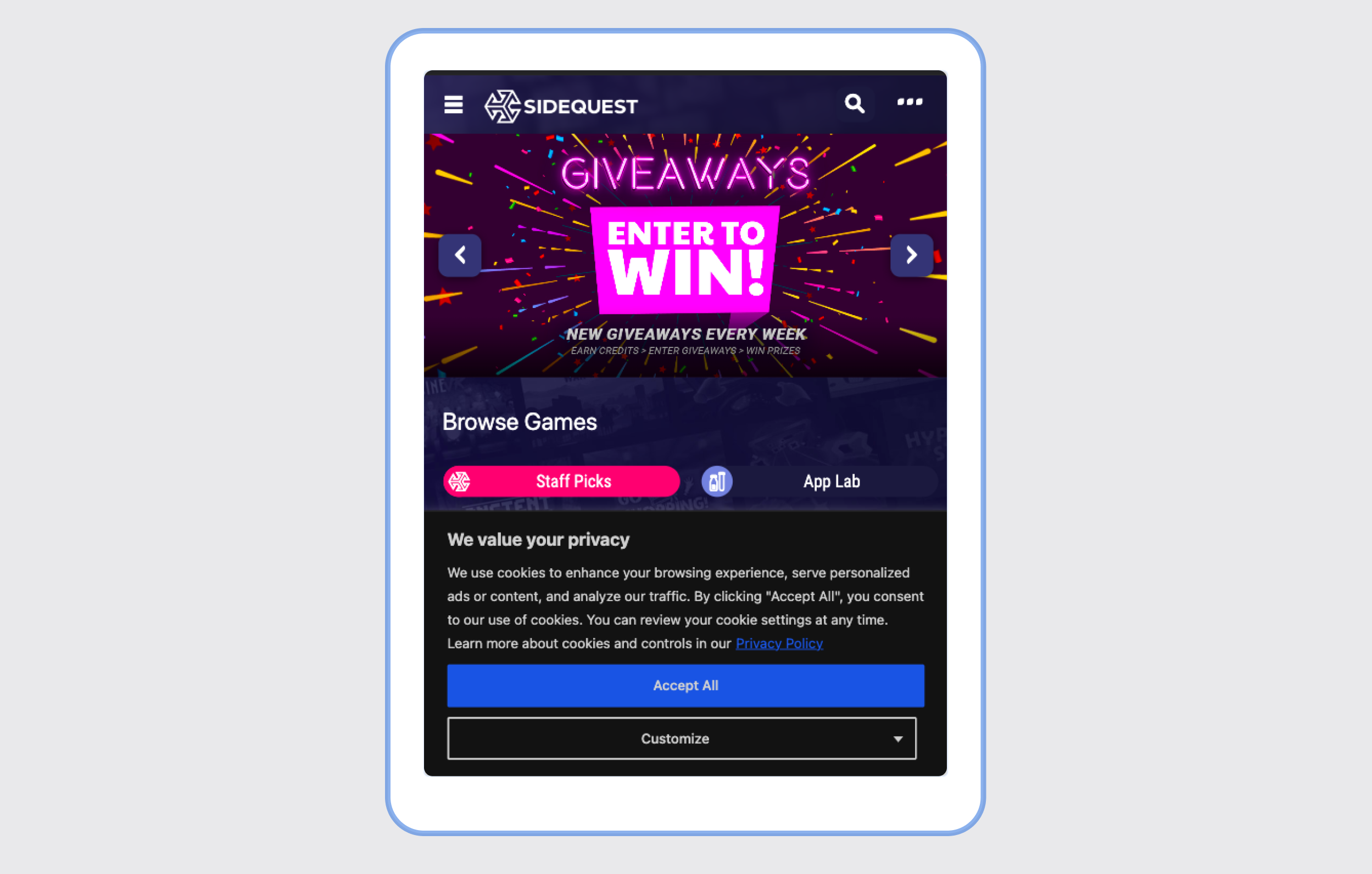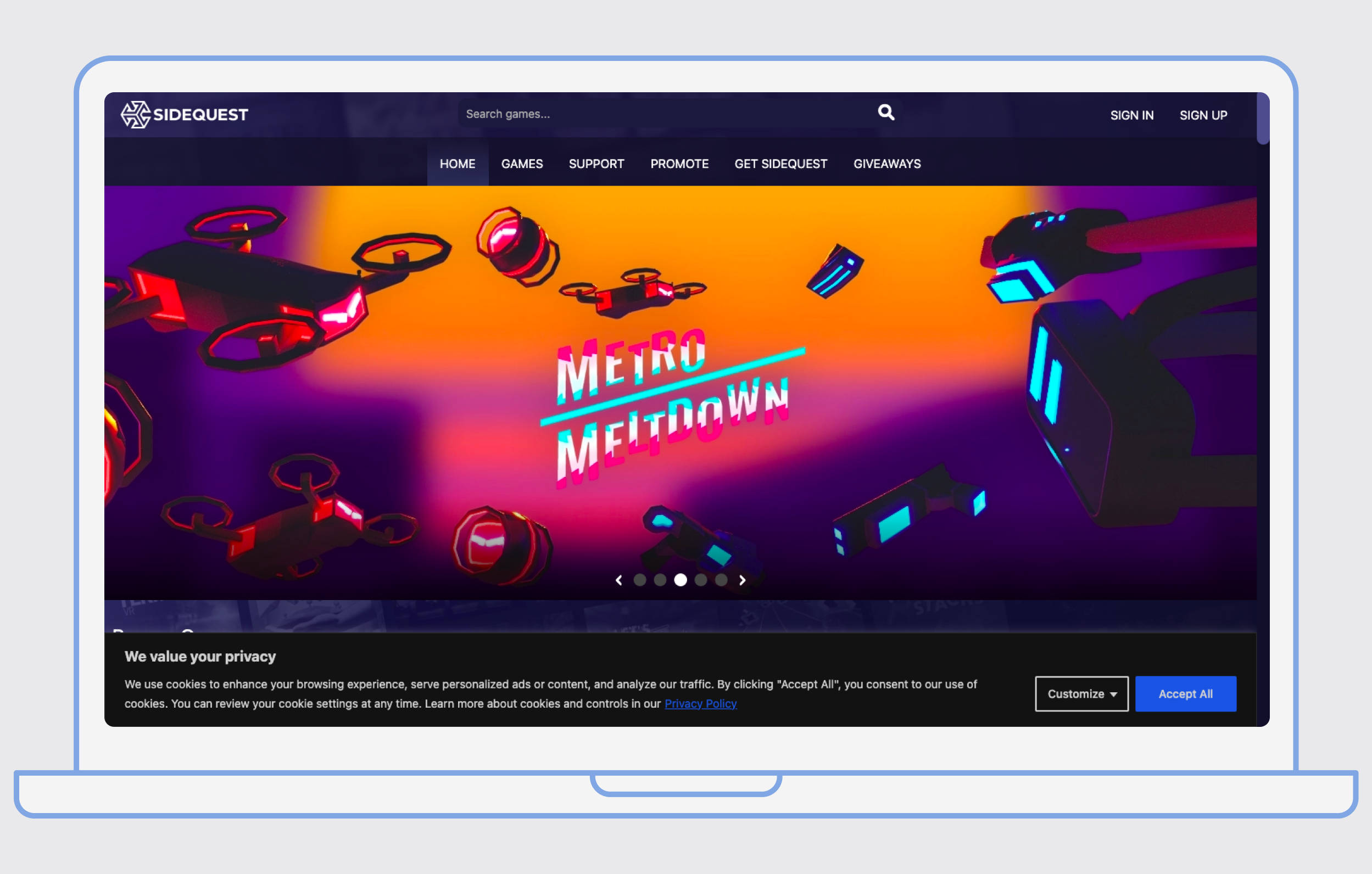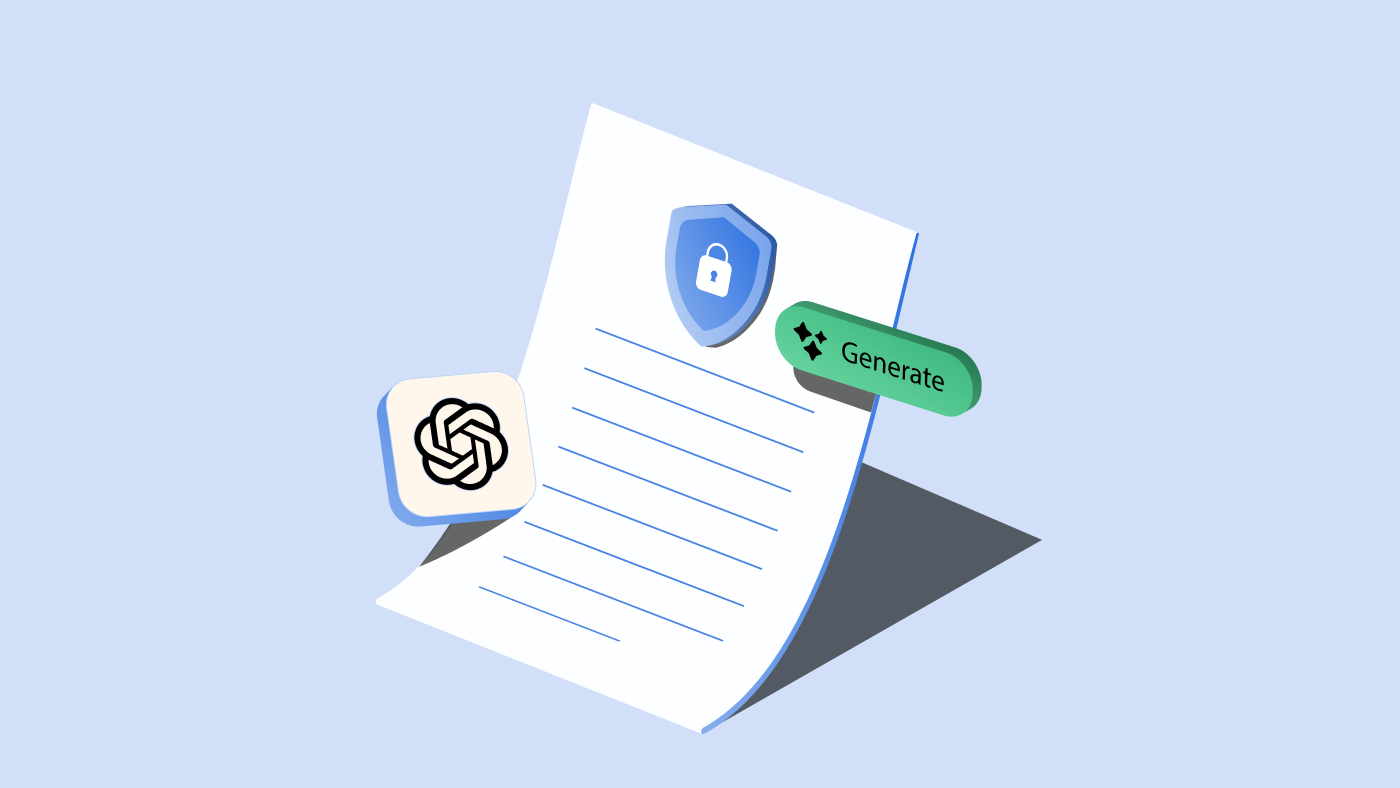2.5 quintillion bytes of data are created every day on the internet. The volume and use of data have grown enormously in the past few years, and so have regulations like the GDPR and CCPA that have put legal obligations on businesses to protect user’s personal data and manage it securely.
In the wake of ever-evolving privacy regulations, consent management platforms or CMPs have grown in popularity because they help businesses collect, store and manage customer consent. This blog will discuss what you need to know before selecting a cookie consent management platform for your business.
What is a consent management platform (CMP)?
A consent management platform (CMP) is a tool that helps websites collect and manage user consent that is required for processing their personal data. Simply put, a consent management platform makes consent collection easier and more transparent.
What does a consent management platform do?
The key features of a Consent Management Platform are:
- Consent collection: The primary function of a CMP is to facilitate the collection of user consent. A CMP will enable you to display a cookie banner to collect valid user consent in compliance with regulations, including granular consent and the option to revoke consent easily.
- Consent management: A CMP will automatically detect and block cookies before user consent, and continually scan and update your site’s cookie list to up-to-date compliance.
- Consent signals: A CMP captures consent preferences and shares them with third parties and vendors involved in data processing, such as your Google Analytics, ad vendors.
- Proof of consent: Once consent is collected, a CMP stores it securely in a central repository. This will act as proof of compliance during regulatory audits.
How to choose the right consent management platform (CMP)
You must consider a few significant features while selecting a consent management platform for your business. Here are the key points to keep in mind.
Compliance with privacy laws
Ensure that a CMP is designed to comply with relevant privacy laws that require businesses to obtain consent for collecting and using user’s personal data. These include GDPR (EU & UK), CCPA/CPRA (California), CDPA (Virginia), LGPD (Brazil), POPIA (South Africa) and PDPA (Singapore).
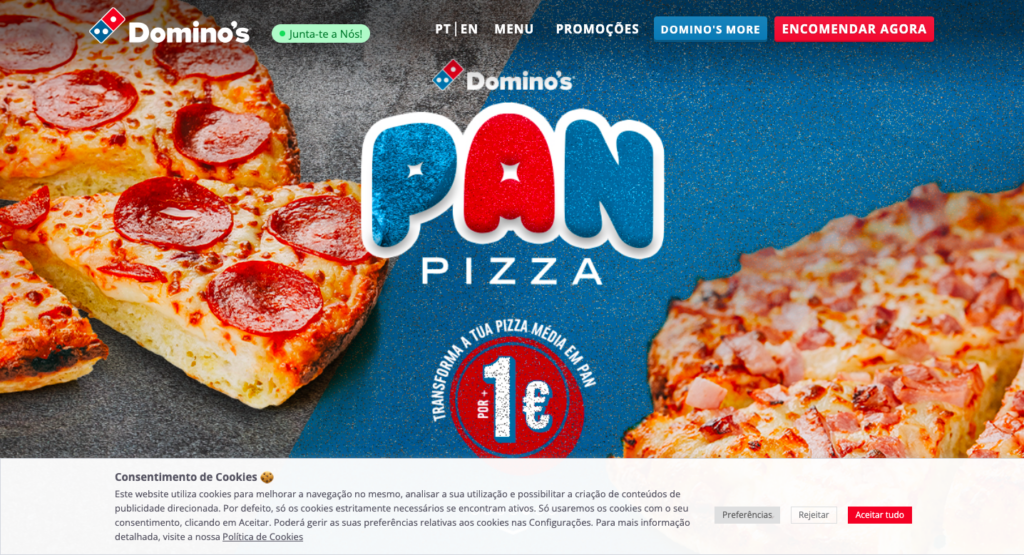
For your consent collection to be GDPR compliant, it should adhere to certain standards. Ensure that a CMP can fulfil all the requirements set out by the regulations.
Cookie consent requirements
- Consent should be freely given, for instance, access to the website cannot be dependent on whether a user gives consent to cookies or not.
- Consent should be informed i.e. the reasons for using cookies must be clearly stated in your consent banner.
- Consent should be given for a specific purpose i.e. user should be able to consent only for the use of cookies and not for any other kinds of personal data processing.
- Consent should be given via a positive or affirmative act like clicking on an ‘Agree’ button or checking a tick box.
- Consent should be requested using clear and plain language so the user has clarity on what they are agreeing to.
- Consent can be withdrawn. Once the user agrees to cookies, they should be able to revoke the consent as easily as they gave consent.
Easy implementation
Look for a CMP that can be easily implemented on your existing systems, such as your content management system (CMS) or website builder. Your CMP should also support seamless integrations with Google Tag Manager. CookieYes supports easy integration for any website builder, with documentation available for all major CMS.
“CookieYes is very quick and easy to install and as a bonus: it works immediately from the second you installed it on your website.” – G2 review
Google-certified CMP
In light of new regulations such as the Digital Markets Act and Digital Services Act, Google has made key updates to its policy. Websites that utilise Google publisher products are now required to implement a Google-certified CMP by January 16, 2024. This is mandatory, if you want to continue serving personalised ads in the EEA and UK.
Supports IAB TCF v2.2 compliance
By adopting the IAB Transparency and Consent Framework version 2.2 or TCF v2.2, you can align with industry standards for consent management. Compliance with the standard is critical to protect your ad revenue, as Google requires website publishers to follow the IAB TCF v2.2 standards to show personalised ads in EEA and the UK, before January 16, 2024.
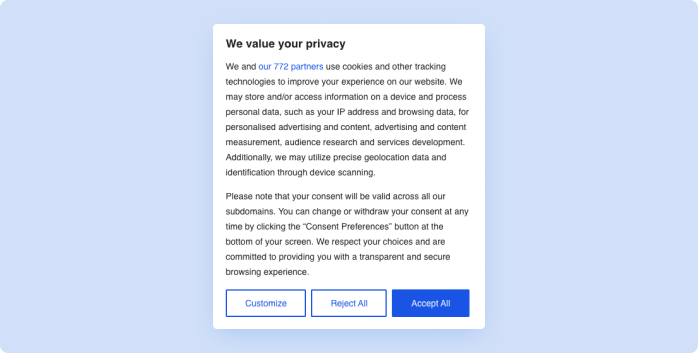
Supports Google Consent Mode V2
Google has also updated its Consent mode to V2 and it is critical for website owners and marketers using Google’s advertising and analytics products to switch to Consent Mode V2 before March 2024.
Customisable design
Your CMP should enable you to customize your cookie banner to reflect your website’s design and branding, including support for mobile-responsive design.
CookieYes CMP offers advanced cookie banner customizations, including the layout, colours, content, behaviour and advanced CSS options. You don’t need any knowledge of coding or integrations. Want to try a free consent management platform?
- Sign up on CookieYes for free!
- Customize the banner and preview it.
- Copy the code and paste it on your website
✅ Done! Your website now has a compliant cookie banner.
Automatic scanning and cookie detection
To obtain user consent, websites have to provide full disclosure to users about the cookies being used on their sites. A CMP should have an in-built cookie tracking software that scans websites to identify and detect cookies, beacons, tags, tracking pixels, and other tracking technologies deployed on a website.
With CookieYes, your cookies are categorized based on their purposes – necessary, functional, analytics, performance, advertisement and others. This detailed disclosure is made available on your cookie banner’s second layer.
Auto-blocking third-party cookies
Third-party cookies that are often the lifeline for advertisers and analytics are a big no-no until a user consents to their use. A CMP should block third-party cookies till the user takes action via the cookie banner.
CookieYes CMP features an in-built mechanism to block third-party cookies like Google Analytics, Facebook pixels and Hotjar cookies from pre-loading on a user’s browser.
Record of user consent for audit
A CMP should maintain a centralized trail of user consent to demonstrate compliance with privacy regulations. This is significant because laws like the GDPR require businesses to demonstrate their compliance.
With CookieYesYou can have comprehensive documentation in the Consent Log – user’s anonymized IP address and country, timestamp when the consent was given, user’s consent status (accepted, rejected, or partially accepted) and the cookie categories they agreed to. You can export the consent log and save it to your database, for documentation.
Consent renewal or change of preferences
GDPR requires that users have the right to withdraw their consent at any time without facing any consequences. Your CMP should make it easy for users to revoke their consent any time later or change their preferences.
User experience and accessibility
Consider the user experience and accessibility of the cookie banner, for your end user. It should provide a seamless experience for site visitors to give and withdraw consent easily.
Data security
Data security is crucial when managing the personal data of your users. Choose a CMP that offers GDPR-compliant data security to protect your user data. CookieYes stores customer data in secure databases and only on servers in the EU.
Scalability
Ensure that the CMP can handle the volume of data and consent requests that your business receives. It should be scalable to accommodate your growing requirements and traffic.
Support and updates
Privacy regulations are constantly evolving, making it challenging for businesses to keep up with the changes. Look for a CMP that offers ongoing support and updates to keep your consent management system up to date with the latest regulations and best practices.
Good to have features for CMP
- Sub-domain consent sharing: If you want to provide users with centralized control over their consents across different sub-domains, this feature is a great addition. Your CMP can share consent information between subdomains so that your visitors aren’t required to provide consent again for each subdomain they visit.
- Cookie Policy Generator: An up-to-date cookie policy is as important as your cookie banner. Choose a CMP that provides the option to generate a cookie policy with an auto-updating cookie list.
TL;DR Consent Management Platform (CMP) Checklist
Here’s what you need to check before choosing a CMP for your website.
- Provides compliance with major privacy laws
- Easy to implement and use
- Google-certified CMP partner
- Supports IAB TCF v2.2
- Compatible with Google Consent Mode v2
- Has customisable banner design
- Has automatic scanning and cookie detection
- Auto-blocks third-party cookies
- Maintains user consent records for audit
- Supports consent renewal or change of preferences
- Prioritises user experience and accessibility
- Provides data security as per privacy laws
- Is scalable to meet your website’s growth
- Has ongoing support and feature updates
Why should you use a consent management platform?
Getting users’ consent is required to collect data
Privacy regulations like GDPR (EU & UK), LGPD (Brazil), and POPIA (South Africa) mandate that businesses should get consent for collecting and using the personal data of users. Since online identifiers like cookie IDs can over time collect enough data to create a profile of a user and possibly identify an individual, they fall under the scope of personal data. Hence their use is regulated and requires consent from users.
Build trust in your data collection
In a Salesforce research, 58% of customers noted that they are comfortable with relevant personal data being used in a transparent and beneficial manner. While another study noted that 80% of consumers say they left because the brand was using their data without consent.
In an increasingly privacy-conscious world, regardless of the laws, businesses should be able to honour an individual’s privacy and ensure that your end-user has full control and transparency over how their data is being used. To achieve such transparency, you have to notify users about how and why you collect their data and get their consent for the same.
- Integrate user consent as part of your business’s privacy-friendly policy.
- Allow users to opt in or out of data collection via a cookie consent notice that is easy to read and easy to use.
- Avoid the risk to your business’s reputation due to privacy fines and violations.
Why CookieYes CMP fits your business needs
- Easy integration on any Content Management System (CMS) that a website runs on or custom-coded websites.
- Intuitive dashboard that gives website owners a single place to manage all customisation options and features.
- Fully customisable cookie banner with personalization for layout, colour, font, CSS and custom branding.
- Geotargeting banner that can be displayed to end-users based on their location and the applicable privacy law.
- Automatically blocks third-party cookies and other tracking technologies until your users give consent.
- IAB TCF v2.2 cookie banner with IAB-recommended text, UI and other specifications.
- Seamless integrations with Google Consent Mode V2 and Additional Consent Mode.
- A personalized user experience for website visitors with a banner that supports 170+ languages.
- Revisit consent button so users can withdraw consent or change their cookie preferences after giving consent for the first time.
- Easy integration with Google Analytics and Google Tag Manager.
- Advanced cookie scanner with features like monthly scheduling, IP whitelisting and scan behind login.
- Built-in integration with Do Not Track (DNT) and Global Privacy Control (GPC) browser settings.
- Cookie policy and privacy policy generator for full privacy compliance for websites.
Consent management is an opportunity to not just comply with regulations but also to show users that you respect their data. Put consent management into practice with a best-in-class CookieYes CMP.
FAQ on Consent Management Platforms
Do I need consent management for my website?
Yes, consent management is key if you want your website to be privacy-compliant. Websites in the EU and UK come under the scope of the GDPR and the ePrivacy Directive. Due to GDPR’s extraterritorial scope, websites that have visitors from the EU or UK are also required to adhere to cookie consent rules in the EU.
Similarly, data privacy regulations in the US such as CCPA (California), CDPA (Virginia), LGPD (Brazil), POPIA (South Africa), PDPA (Singapore) and so on also regulate the use of cookies. Therefore, it’s in your best interest that you use a consent management platform like CookieYes and avoid regulatory fines.
What is a cookie consent manager?
A cookie consent manager or cookie consent management platform is a CMP that helps you to manage cookie consent, which is required as per respective privacy laws. It helps websites collect consent through cookie banners and popups, scan your website for cookies, automatically block third-party cookies and keep a record of the user consent. Cookie consent managers help with all aspects of cookie compliance.
My website does not use cookies, should I use a CMP?
If your website does not use cookies or engage in any form of data collection or processing that requires user consent, then using a Consent Management Platform (CMP) may not be necessary.
However, if any of these points apply to your business, a CMP will help you to effectively manage your site’s compliance:
- You use analytics tools such as Google Analytics etc to track website traffic, user behaviour and performance.
- You use advertising tools and platforms like AdSense, Facebook Pixel, Google Ads etc that set cookies for remarketing, behavioural advertising, and analytics.
- You have third-party plugins for social media and e-commerce that set cookies.
What is GDPR compliance?
The General Data Protection Regulation (GDPR) is a data privacy legislation in the EU and the UK (UK GDPR). GDPR compliance refers to all the provisions that need to be fulfilled by businesses to comply with the GDPR. One of the major requirements is to obtain consent from users when you collect their personal data. Consent Management Platforms or CMPs are tools that help with managing consent collection and protecting users’ personal data as per the data subject rights defined in the GDPR.
What is a Google-certified CMP?
A Google-certified CMP (Consent Management Platform) refers to a CMP that has been approved and certified by Google to integrate with their publisher products. Google has specific requirements and standards that a CMP must meet to ensure compliance with their policies and regulations.
By using a Google-certified CMP, publishers can effectively manage user consent to serve personalized ads and collect ad measurements in the EEA and UK.
CookieYes is a Google-certified CMP for Transparency and Consent Framework (TCF) v2.2 compliance and Google Consent Mode V2.

